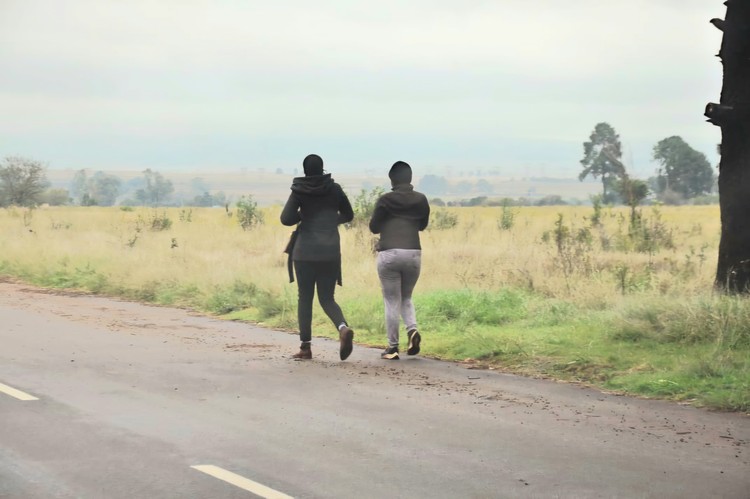
6 May 2025
Sex workers in Vosloorus, Johannesburg and Springs talked to GroundUp about their struggle to access health services, particularly antiretroviral treatment, since the closures of US funded clinics. Photos: Kimberly Mutandiro
It’s afternoon on Boundary Road in Vosloorus. Sex worker Simangele (not her real name) hopes to secure her next client.
Making enough money to pay rent has always been a concern for Simangele. But now she has a new worry: how to keep up with her antiretroviral treatment.
Two months ago the closure of a mobile clinic — where Simangele and other sex workers in Vosloorus went for checkups and to collect their treatment — left her without access to the life-saving medication.
The mobile clinic was run by the Wits Reproductive Health and HIV Institute (WITS RHI) which heavily relied on US funding. The institute has been providing critical sexual and reproductive health services since 2018. The programme was one of many health facilities forced to halt services at the end of January in the wake of US funding cuts for global aid.
Speaking to GroundUp, Simangele says she ran out of antiretroviral medicines (ARVs) over a month ago and has resorted to borrowing a few tablets from a friend. “I don’t know what I will do because the tablets my friend gets give me side effects,” she says. (Antiretrovirals treat HIV. They have to be taken daily for life.)
She says the clinic closed without any warning or before they could give them transfer letters to public healthcare facilities. She is now dreading having to go to a public facility where she says sex workers are frequently discriminated against, particularly those who are undocumented.
We spoke to a dozen other sex workers in Joburg and in Springs who are worried about defaulting on their antiretroviral treatment following the closure of the Wits RHI clinics. The clinics also provided pre-exposure prophylaxis (PrEP) (to prevent HIV-negative people contracting HIV), and treatments for sexually transmitted infections, TB, sexual reproductive health services, and counselling.
A sex worker shows the last few ARVs she has left.
Another sex worker said, “The minute we go to public clinics, they will need documents, which some of us do not have … Wits made time to listen to our problems as sex workers. Even when we faced challenges with clients, they never judged us.”
Sisi (not her real name), who rents rooms and assists sex workers in Vosloorus, said she’s aware of several sex workers who have defaulted and no longer have access to condoms, lubricants, and treatment for sexually transmitted infections. “The Wits clinic did not discriminate against people without documents and would sometimes provide food, branded T-shirts, caps, and even jobs,” she said.
We visited Zig Zag Road in Springs, where several sex workers said they were out or almost out of ARVs. When asked why they didn’t just go to a local clinic, they told GroundUp about instances where they experienced stigma while trying to access treatment at public clinics.
“I used to receive PrEP to help prevent HIV (from the Wits clinic). We would also receive birth control services. Now I can’t go to a public clinic because we are mocked for being sex workers,” said Siphesihle.
Ntombi, who waits for clients along End Street, attended one of the Wits clinics in Hillbrow which closed down. She said those on PrEP were given transfer letters before the clinic closed.
Other workers nearby told GroundUp that they now pay up to R250 for PrEP, which is more than they can afford.
A sign outside the Wits RHI clinic in Hillbrow.
The Sisonke National Movement, which advocates for the rights of sex workers, has been raising the alarm since the closure of US-funded facilities. Before the closures, Sisonke was in talks with National Department of Health through the South African National AIDS Council about the provision of services to sex workers and other vulnerable groups, said the organisation’s spokesperson Yonela Sinqu.
She said that the department never answered activists when they asked what would happen should donor funds no longer be available for these facilities.
She said the plea for assistance without referral letters is made to all provinces, not only Gauteng. However, Gauteng is the only province that has approached us with the crisis of people without referrals, she said.
Department of Health spokesperson Foster Mohale has not responded to requests for comment.